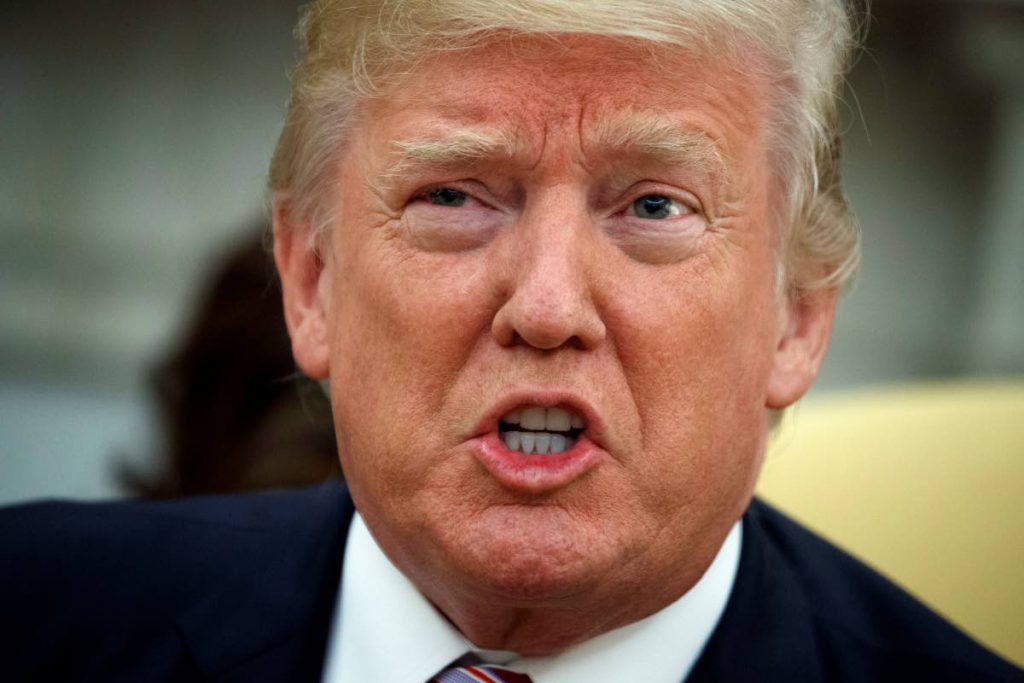Ex-head of defence staff: Diplomacy tops war in Iran

The US and Iran are capable of hurting each other militarily and so they should be helped to reach a diplomatic solution to their conflict, advised TT former chief of defence staff Rodney Smart. Newsday spoke to Smart minutes after US President Donald Trump’s live address the day after Iranian missiles hit bases in Iraq housing US soldiers, who eluded death.
“The US is undoubtedly a superpower while Iran is a middle power,” Smart said.
“Both are capable of inflicting heavy losses on each other, and heightened conflict between these two powers would no doubt destabilise the region, and by extension could lead to challenges throughout the world.”
Smart urged a better outcome.
“While military strength is a potent element of a country’s national power, so too is diplomacy. As difficult as it is in the circumstances, it seems that at this point in time it should be considered by both sides as the weapon of choice. In the long term the continuation of conflict will not benefit either party.”
Newsday asked about fears being voiced globally, by TT citizens, among others, that the conflict might amount to a World War III.
Smart replied that within living memory, similar fears of a global escalation of hostilities had been needlessly voiced at the outbreak of both the First Gulf War (when US troops ejected Iraqi forces from Kuwait) and the Second Gulf War (when a US invasion toppled then Iraqi leader Saddam Hussain from power.)
Smart remarked, “We don’t know where wars lead to, but certainly it is not to anyone’s benefit. I’ll emphasise the importance of de-escalating the situation, as no one benefits in the long term.”
Newsday asked about the lead-up to the current US-Iran military hostilities.
He recalled a recent attack by civilians on the US embassy in Iran, Iran’s seizure of a British oil tanker after an Iranian tanker had been seized and the US’s objection to Iran’s nuclear enrichment. “You have to look at the whole thing. There have been provocations. Both sides have to walk back.”
Smart again urged a diplomatic solution, saying perhaps the Europeans could help to calm down the conflict.
Trump, in his speech, vowed more sanctions against Iran, yet said he was willing to work with those who embrace peace.
He began by justifying last Friday’s US drone strike that killed Iran commander Qasem Soleimani, who he claimed had “murdered thousands of US troops.”
Alleging Soleimani was planning new attacks on US targets, Trump dubbed him “a top terrorist,” and did not mention his role in quelling Islamic State/ISIS.
Saying Iran benefits from the Islamic State’s demise, he said the US and Iran should work together against them. Calling for collaboration against ISIS, he said the US wants Iran to have a great future and will work with those who embrace peace.
Trump lamented that Iran had been paid billions of dollars as part of “the foolish nuclear deal” from which he had withdrawn the US, and urged the UK, France, Germany China and Russia to do likewise. He vowed to ask NATO to get more involved in the Middle East. Trump said the US has big missiles, with new hypersonic missiles due soon, but did not want to use them.
Saying the US is the world’s largest producer of crude oil and natural gas, he said, “We do not need Middle East oil.”
Trump’s speech was broadcast live by the world’s media, amidst concerns of any escalation between the two nations, although Iran has said the limited damage caused by its missile strikes signalled its intent to de-escalate the conflict.
Overall, US media viewed Trump’s speech as a de-escalation of tensions.

Comments
"Ex-head of defence staff: Diplomacy tops war in Iran"